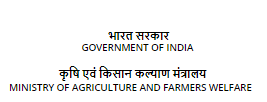CSR GROW-SURE – A Biomsart Bio-Consortia for Enhancing the Productivity of Agri-Horticultural Crops in Salt Affected Soils
Background:
One of the important categories of waste land in India is salt affected waste land, which occupies extensive area in the world and in India (6.73 mha) as well, presenting a serious impediment to crop production. Uttar Pradesh alone accounts for 1.37 mha of sodic soils. High alkalinity and high exchangeable sodium percentage (ESP>15) of the soil and poor soil structure render it inhospitable for normal crop production and there is minimal bio-productivity in such soil. Poor hydraulic conductivity and poor biological activities are common features of these soils even after reclamation using gypsum technology that hinders the growth of the commercial horticultural crops in the reclaimed sodic soils. ICAR-Central Soil Salinity Research Institute, RRS Lucknow came up with a bio-enhancer CSR-BIO using salt tolerant microbes in a patent protected media under the NAIP project in collaboration with IVRI, Bareilly addressing the above problem. The formulation was effective in the management of crop growth in sodic soils up to pH 9.0.:
The current formulation CSR GROW-SURE is an advanced formulation of the earlier one that comprise of highly efficient salt tolerant bacteria strains CSR-M-16 (Bacillus licheniformis), CSR-A-11 (Lysnibacillus fusiformis), CSR-A-16 (Lysnibacillus sphaericus).:
Technology Details:
The current claim under the CSR GROW-SURE is a unique bio-stimulant that has been developed using the highly efficient salt tolerant bacteria strains CSR-M-16 (Bacillus licheniformis), CSR-A-11 (Lysnibacillus fusiformis), CSR-A-16 (Lysnibacillus sphaericus) obtained from high stress rhizosphere cultured in a unique modified CSR medium which is under IPR protection. The four bacterial strains were made into consortia and cultured on a patent protected media. The formulation was assessed for growth and yield parameters in tomato var.NS585 grown in sodic soils of pH 9.14-9.30 in field experiment conducted at the sodic soil experimental research farm of Central Soil Salinity Research Institute, Regional Research Station, Lucknow in field and pot experiment. The results clearly showed 10 percent more efficacy of the current consortia than the earlier CSRBIO. The consortia used in CSR GROW-SURE gave the highest yield of 55.5 tonnes/ha with higher lycopene content (166.57mg/kg) while the control exhibited the highest mortality index with an yield of 12.00 t/ha and lycopene content of (44.22 mg/kg). The results were further evaluated in banana were CSR GROW-SURE comprising of the bacterial microbial consortia of CSR-M16, CSR-A11 and CSR-A16 resulted in successful cultivation of banana in partially reclaimed sodic soils of pH 9.2. The formulation was further validated in farmers field experiment at Samesi in UP in waterlogged sodic soils for two years. It was also evaluated at CSSRI, Karnal in DSR rice against the efficacy of 25% more Nitrogen dosage to increase the productivity of rice under DSR system.:
Recommended crops::
Vegetables like tomato, chillies, potato, brinjal etc.:
i. Seed treatment with 1 percent solution:
ii. ii. Soil drenching with 1 percent liquid formmulation prepared by mixing of 1 L of liquid in 100 L of water and 200 g of jiggery, incubated for 24 – 48 hrs. The formulation to be applied at 10 days after planting, 30 days after planting and 50 days after planting.:
Fruits like banana, mango etc:
i. Soil drenching with 1 percent liquid formmulation prepared by mixing of 1 L of liquid in 100 L of water and 200 g of jiggery, incubated for 24 – 48 hrs. The formulation to be applied at 15 days after planting, during 3rd, 5th and 7th month after planting for banana.:
ii. Soil drenching with 1 percent liquid formmulation prepared by mixing of 1 L of liquid in 100 L of water and 200 g of jiggery, incubated for 24 – 48 hrs. The formulation to be applied at the month of October. Foliar spray can also be done at initial fruit development stage in mango.:


